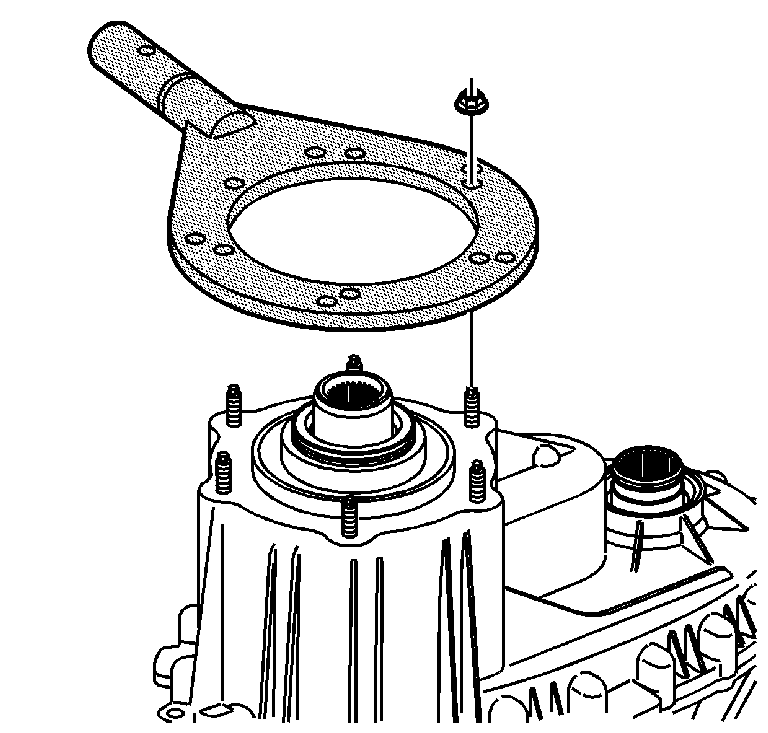
- Attach the J 45759
to the transfer case using the adapter studs. All of the transfer case disassembly
procedures can be performed with the case mounted to the J 45759
.
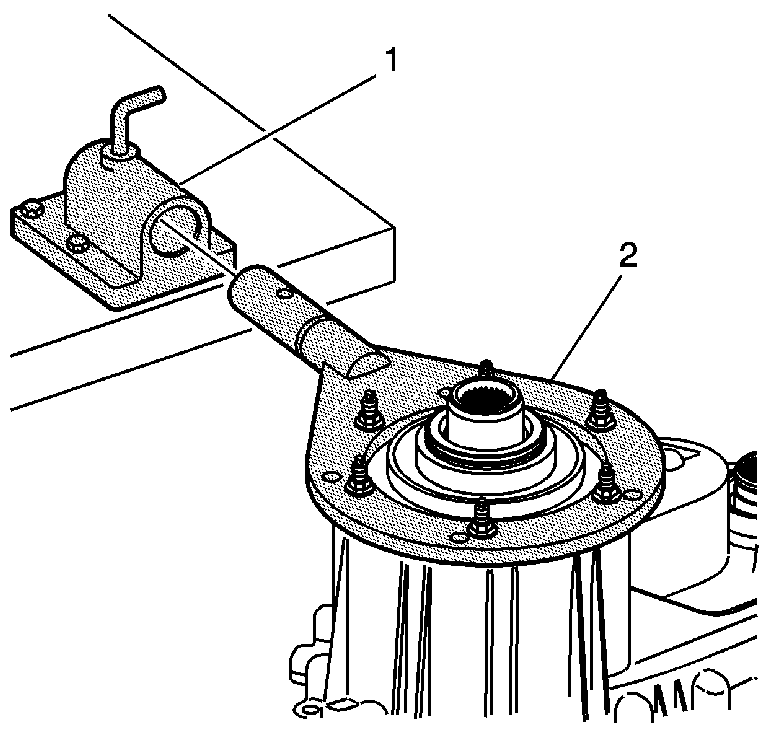
- Mount the J 3289-20
(1)
to a sturdy workbench.
- Install the J 45759
(2)
into J 3289-20
(1) and secure
with pivot pin.
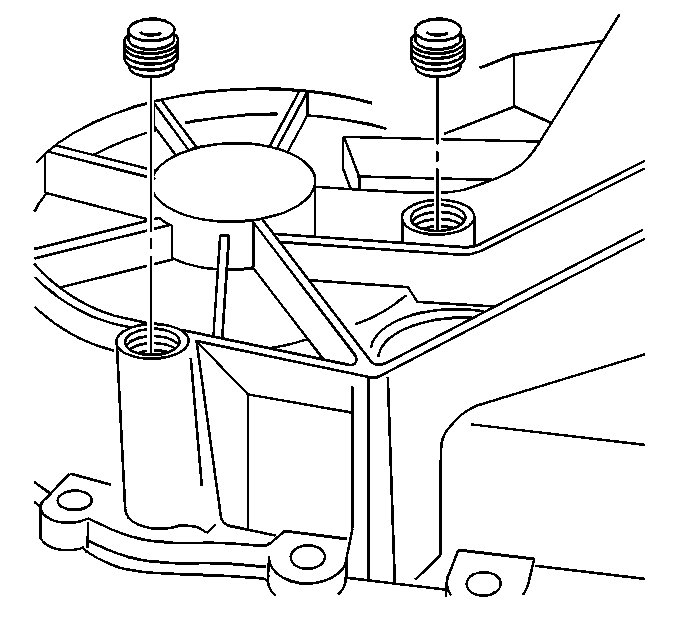
- Remove the drain and fill plugs.
- Drain the fluid from the transfer case.
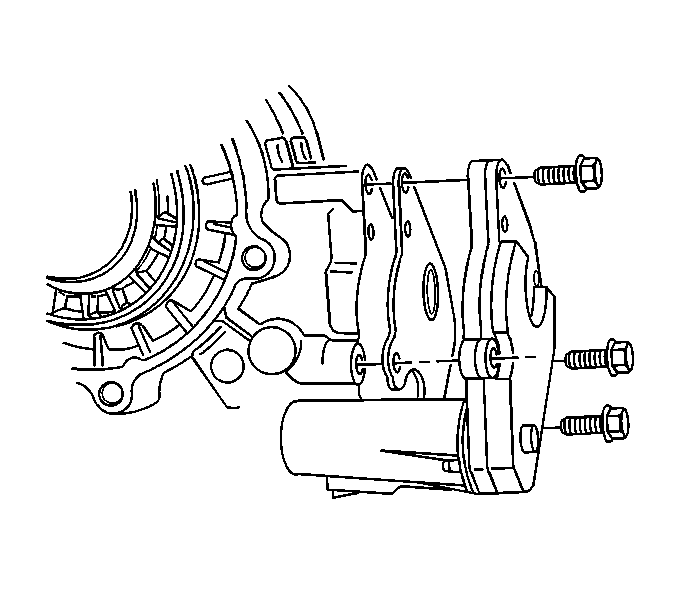
- Remove the encoder motor mounting bolts.
- Remove the encoder motor assembly.
- Remove the encoder motor gasket.
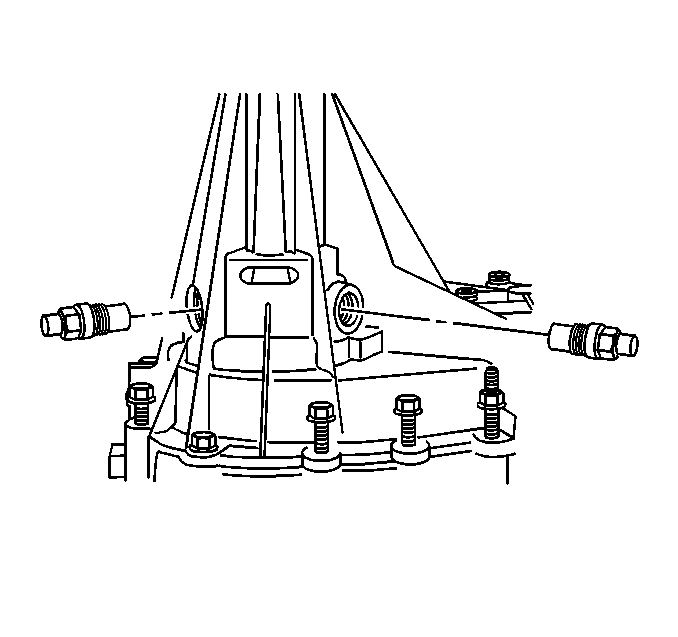
- Remove the left rear speed sensor.
- Remove the right rear speed sensor.
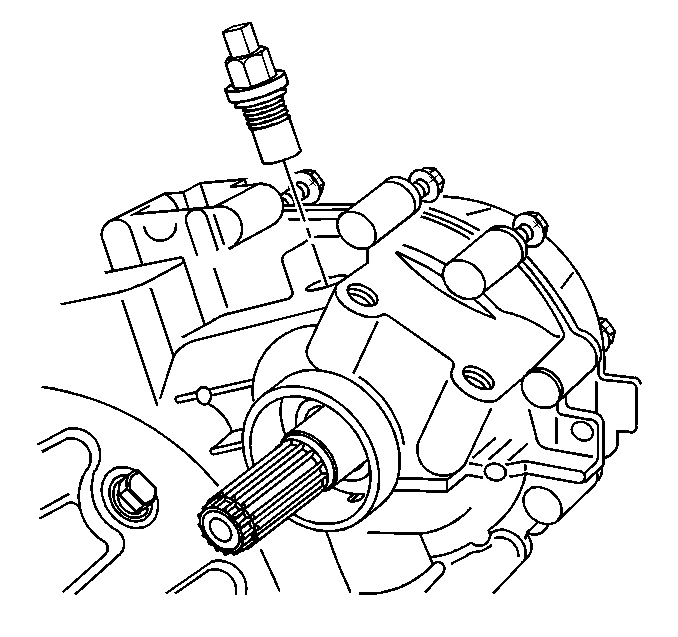
- Remove the front speed sensor.
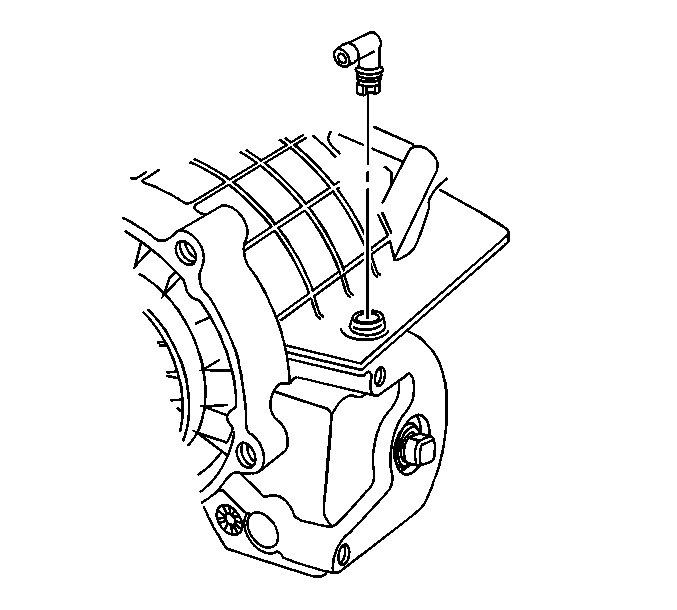
- Remove the vent tube, only if it is
damaged.
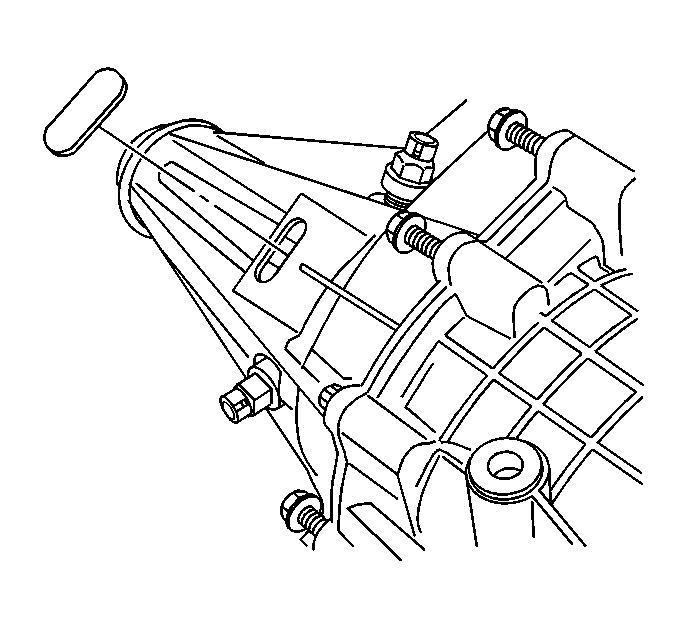
- Remove the rubber plug.
Notice: Refer to Transfer Case Seal Removal Notice in the Preface section.
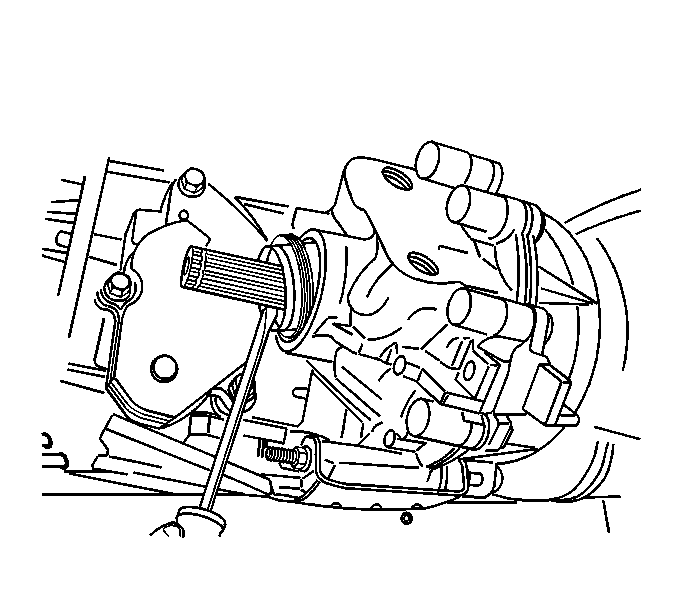
- Remove the front output shaft seal.
Notice: Refer to Transfer Case Seal Removal Notice in the Preface section.
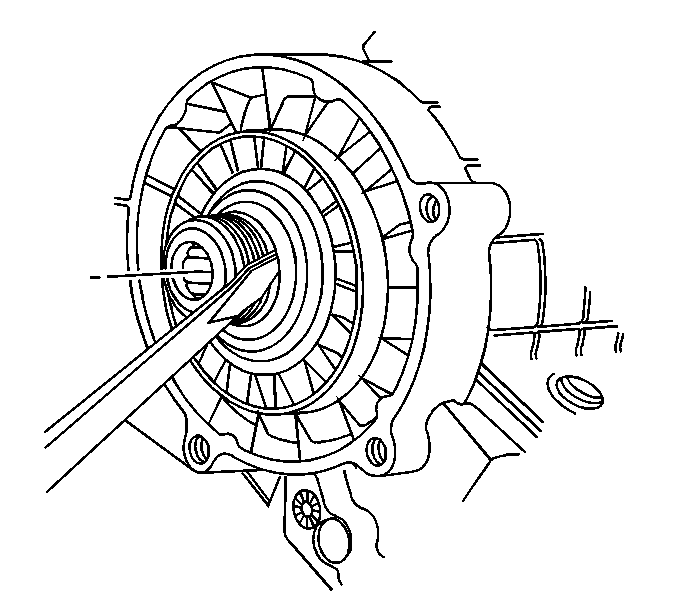
- Remove the input shaft seal.
Notice: Refer to Transfer Case Seal Removal Notice in the Preface section.
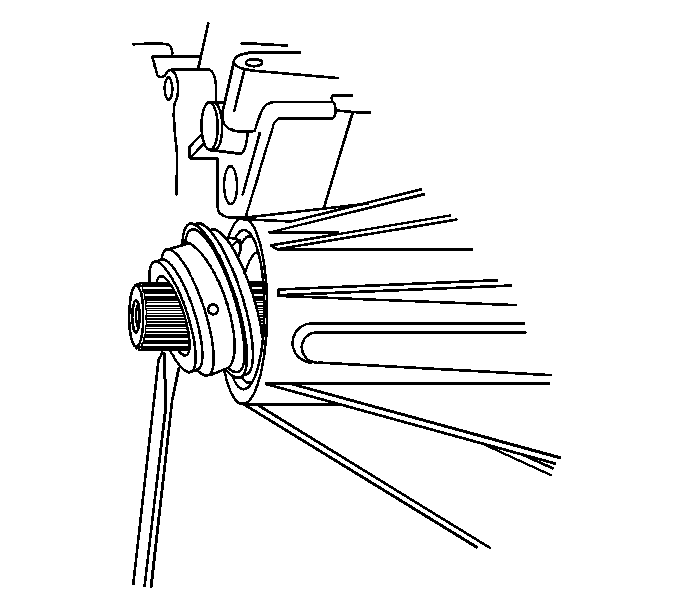
- Remove the rear output shaft seal.
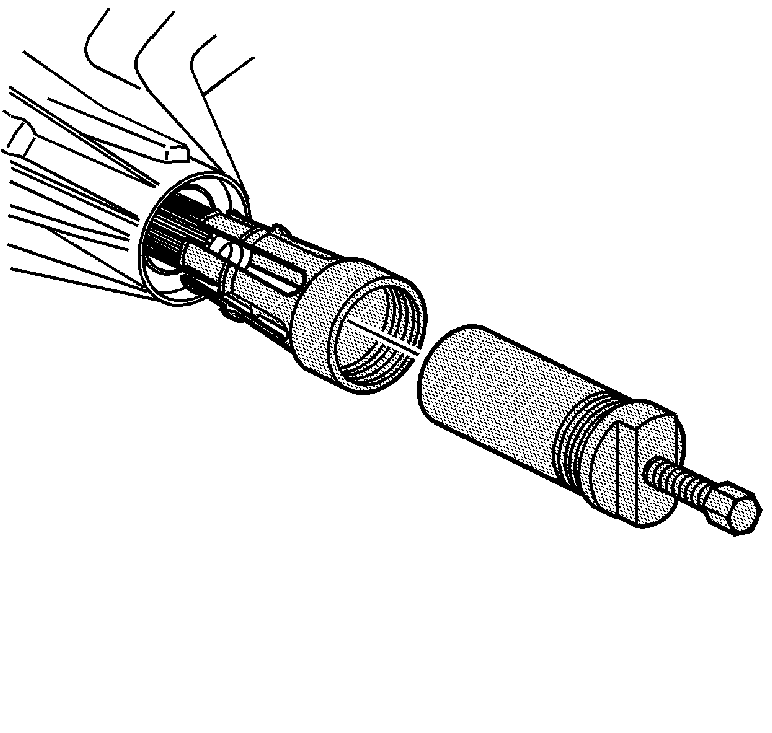
- Inspect the rear bushing for scoring
or wear.
- Using the J 45380
, remove
the rear bushing.
| • | Install the finger section of the J 45380
in front of the bushing. |
| • | Install the tube and forcing screw assembly to the finger section.
Ensure the forcing screw is backed out. |
| • | Using a wrench on the forcing screw, remove the rear bushing. |
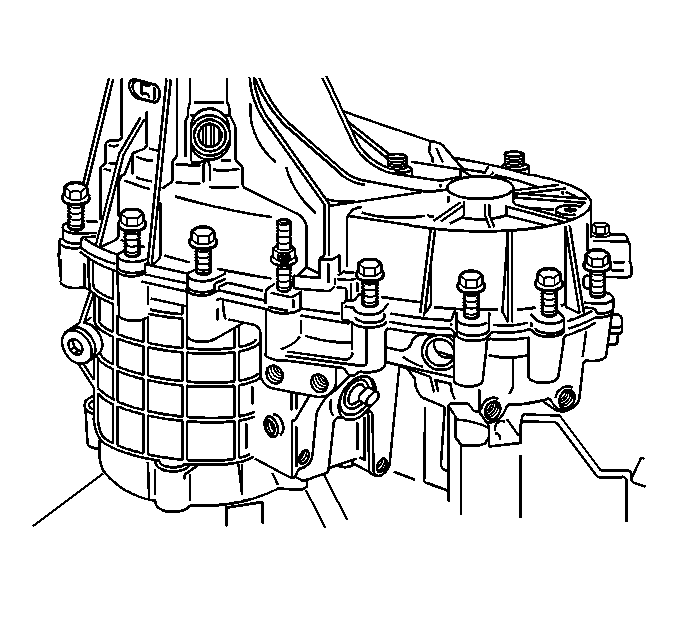
- Remove the transfer case retaining bolts
and studs.
- Mark the location of the studs and brackets.
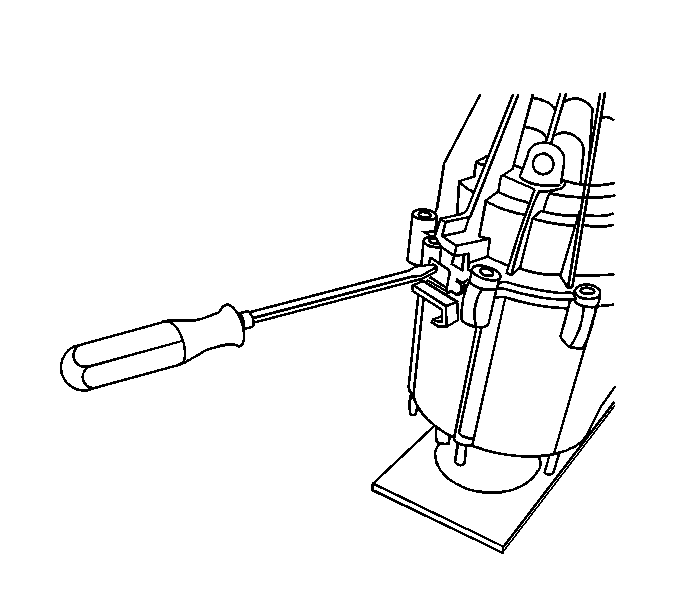
- Insert a flat bladed screwdriver in
the slot on the left side of the transfer case.
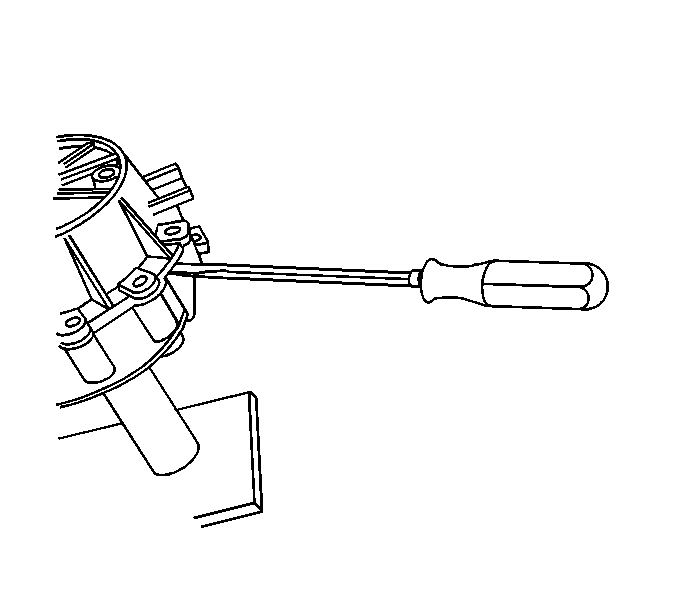
- Insert a flat bladed screwdriver in
the slot on the right side of the transfer case.
- Apply equal pressure on both of the screwdrivers, in a downward
motion, and separate the front and rear case halves.
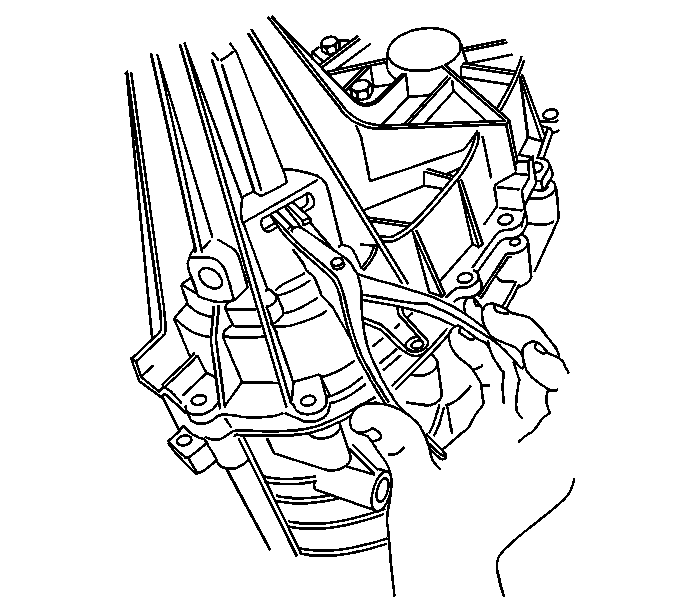
- Insert snap ring pliers in the slot.
- Using the snap ring pliers, open the retaining ring for the rear
output shaft bearing.
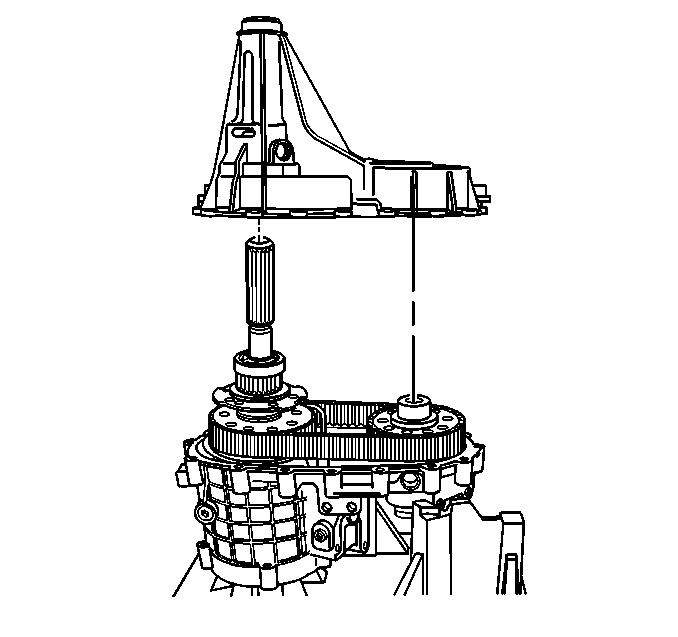
- Remove the rear case from the front
case.
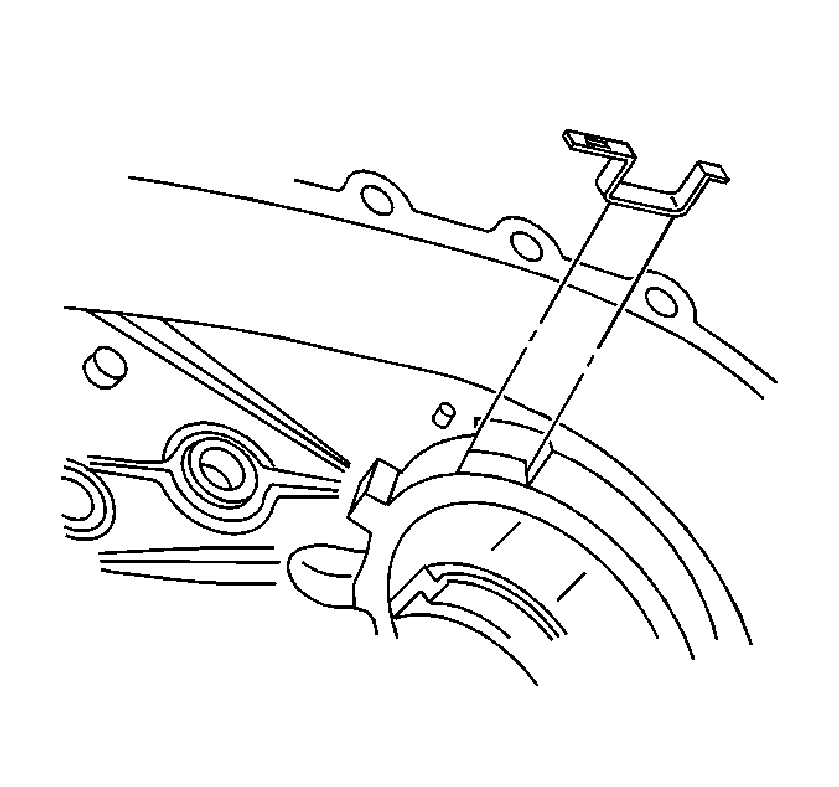
- Remove the oil pump wear sleeve, only
if it is worn or damaged.
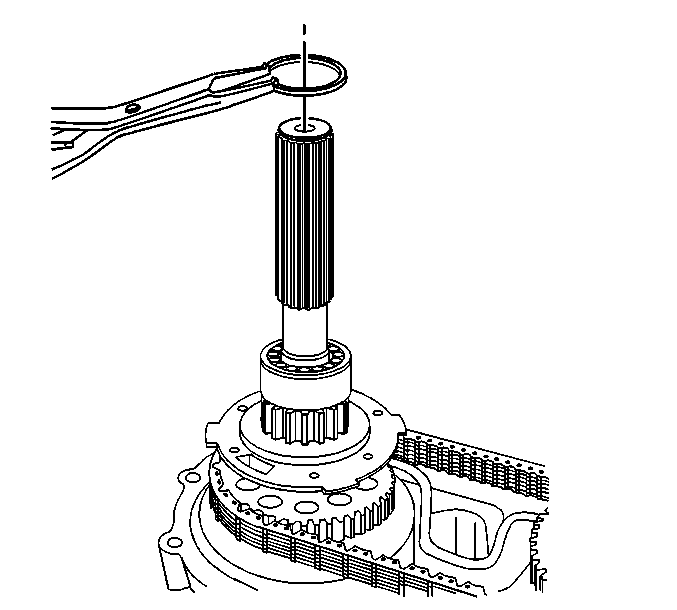
- Remove the rear output shaft bearing
retaining ring.
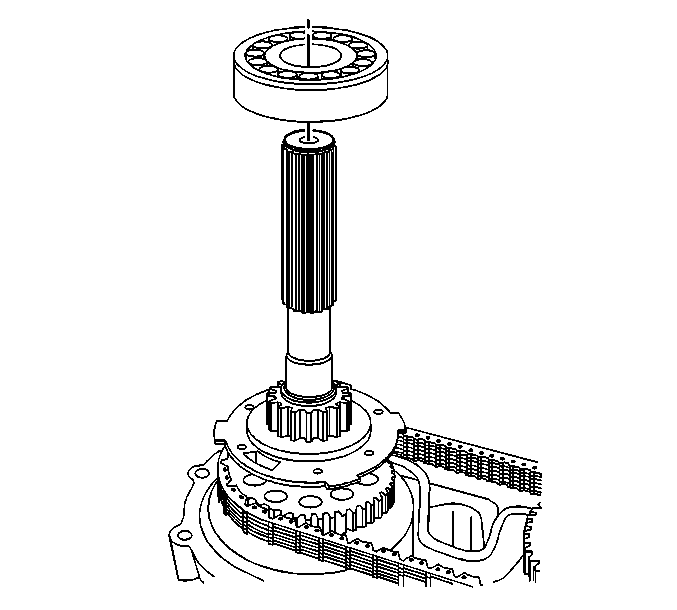
- Remove the rear output shaft bearing.
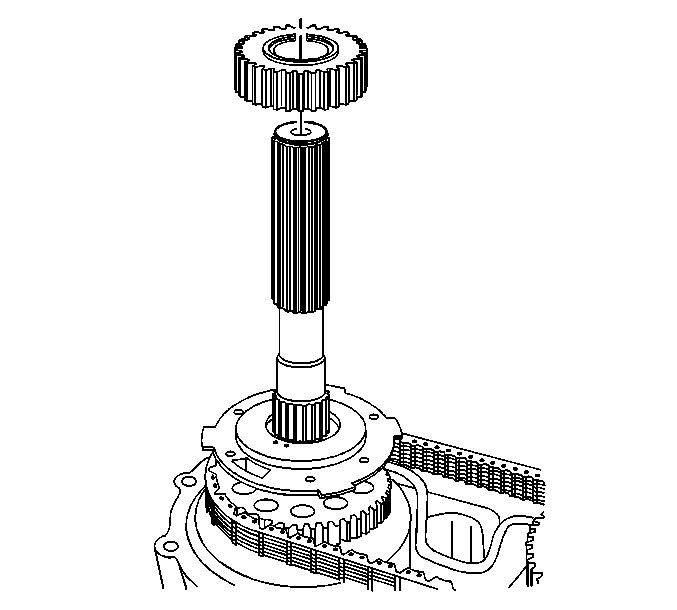
- Remove the speed reluctor wheel.
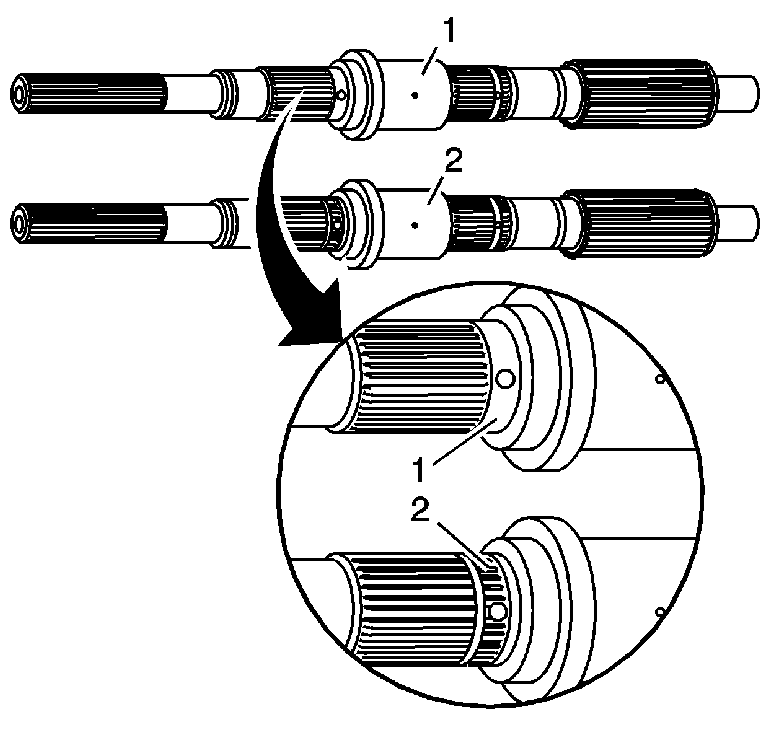
Important: The rear output shaft may be an original design (2) or the replacement
design (1). The original design rear output shaft (2) uses
an oil pump wave washer above the oil pump and a retaining ring under the
oil pump. The original design rear output shaft (2) is identified
by the splines in the area by the oil gallery hole. The replacement design
rear output shaft has a smooth area by the oil gallery hole.
- Inspect the rear output shaft to identify as an original design (2)
or the replacement design (1).
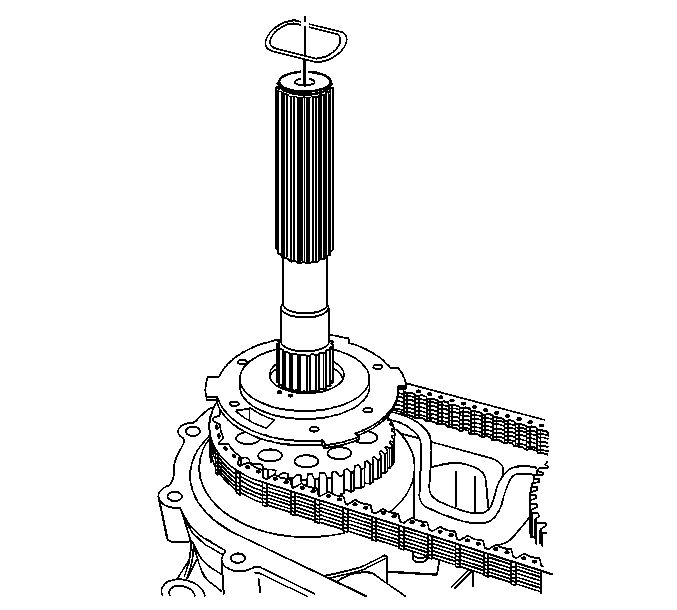
- Remove the oil pump wave spring, if original
design rear output shaft.
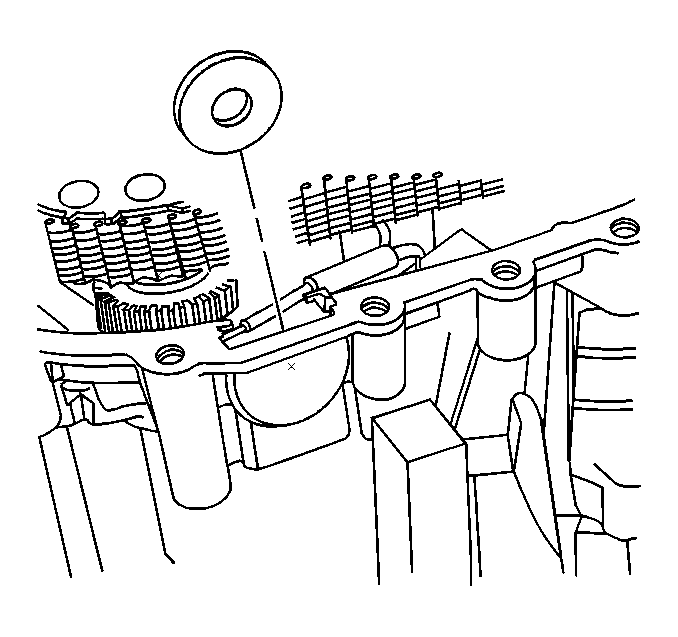
- Remove the magnet.
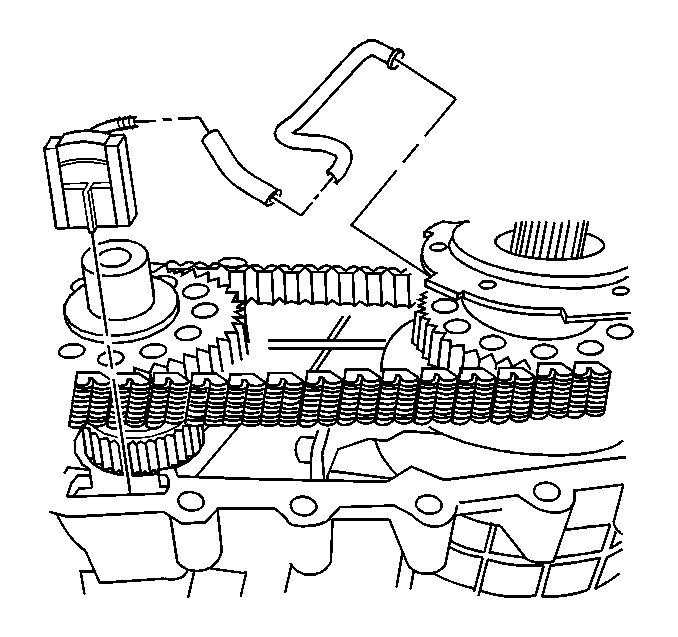
- Remove the oil pump screen assembly.
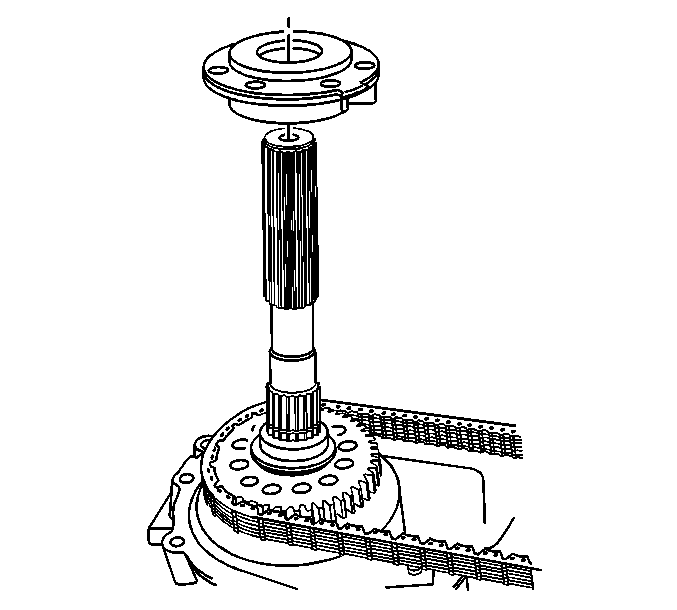
- Remove the oil pump assembly.
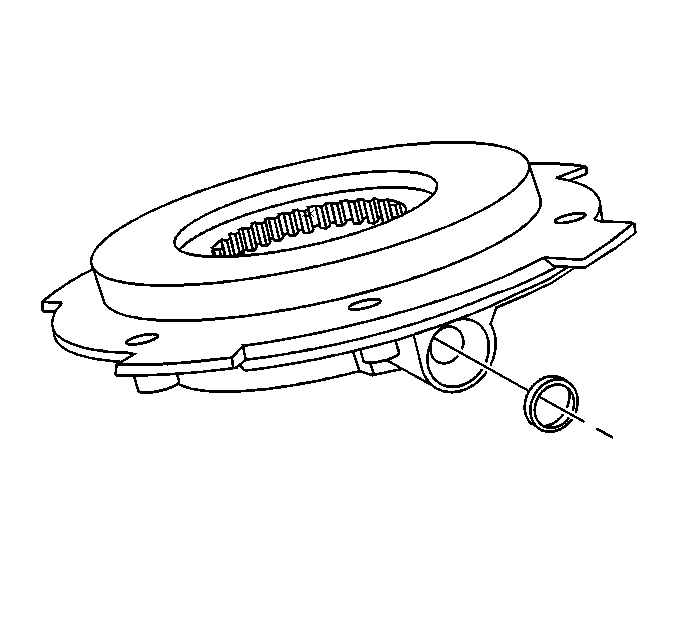
- Remove the oil pump pick up tube seal.
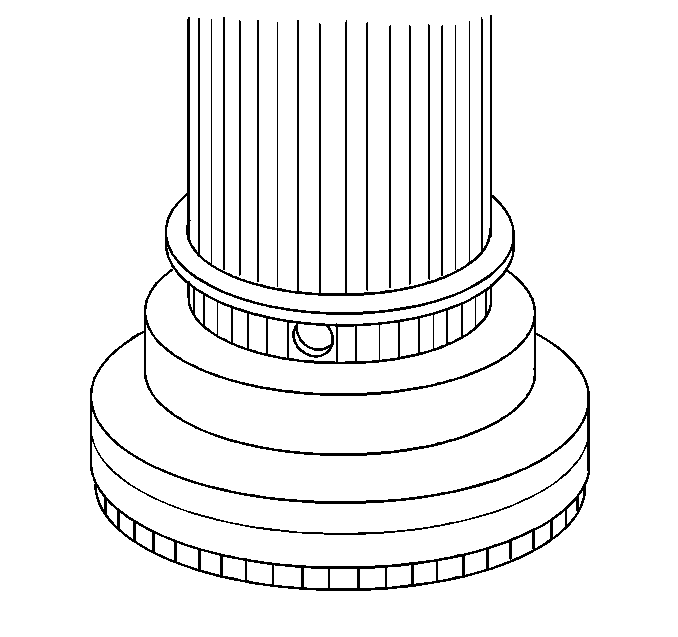
- Remove the oil pump retaining ring, if
original design rear output shaft.
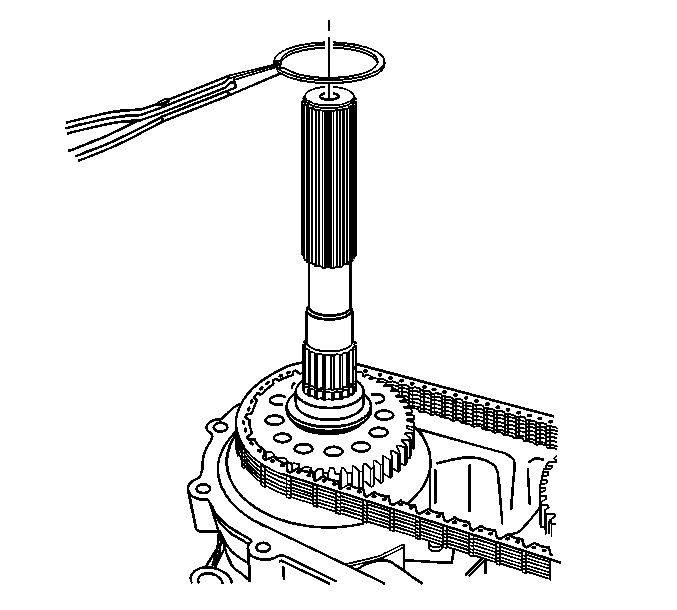
- Remove the drive sprocket retaining
ring.
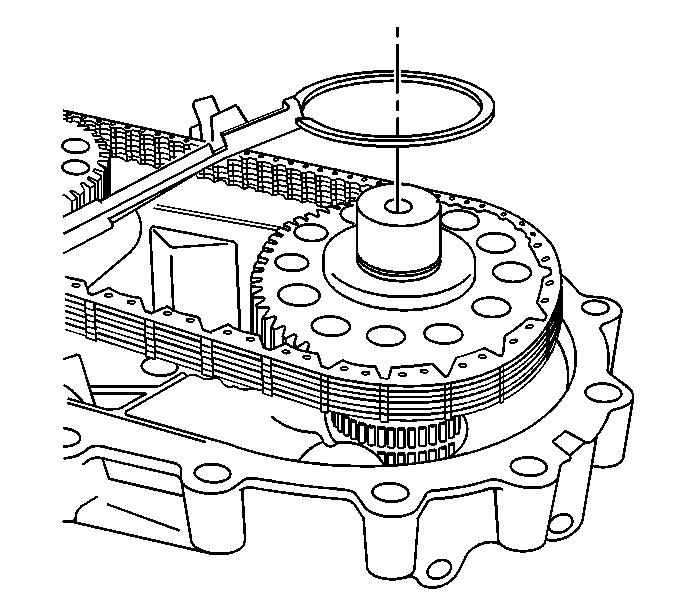
- Remove the driven sprocket retaining
ring.
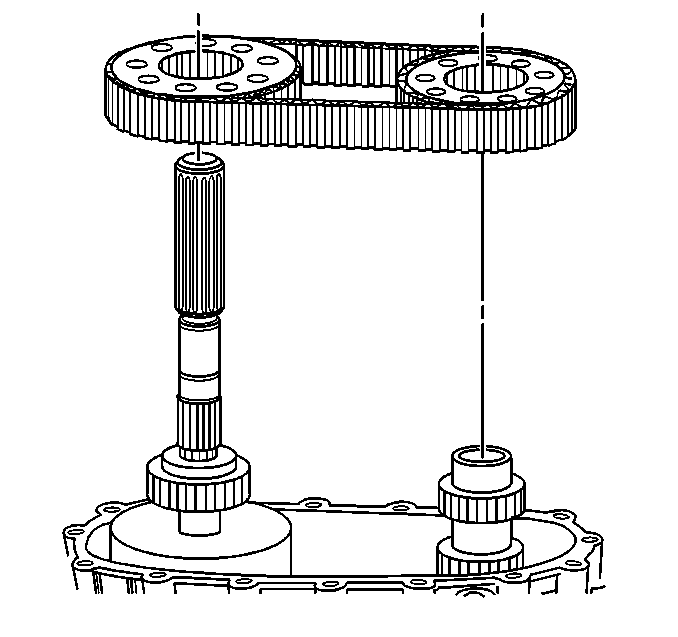
Important: If the drive chain and sprockets are to be used again, mark the relationship
of the drive chain to the sprockets for proper alignment of the wear pattern.
- Remove the drive chain and sprockets.
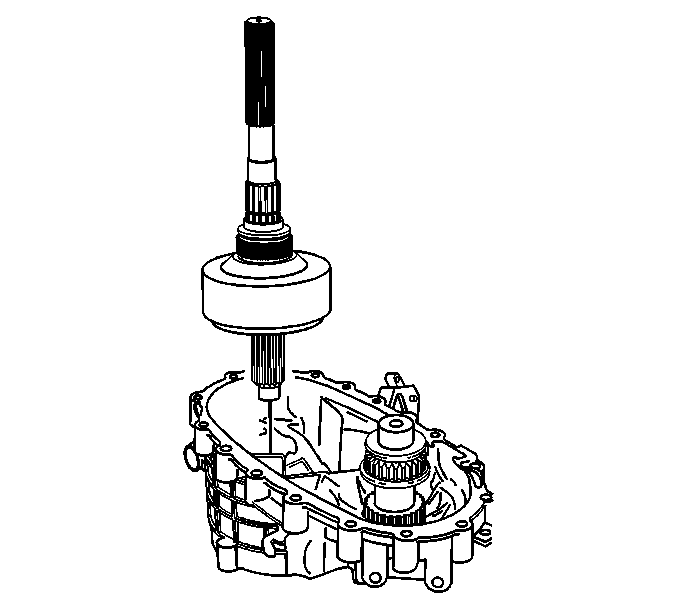
- Remove the rear output shaft assembly.
- Mount the rear output shaft in a soft-jaw vise with the
input end up.
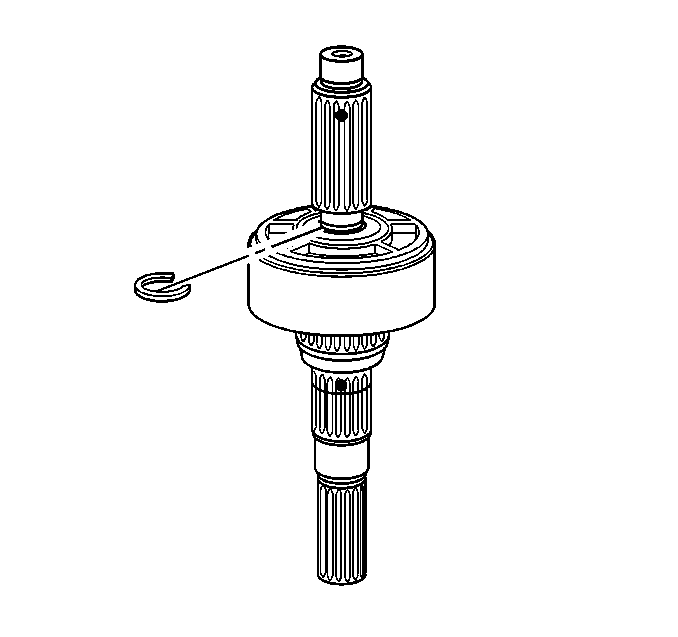
- Remove the clutch retaining ring.
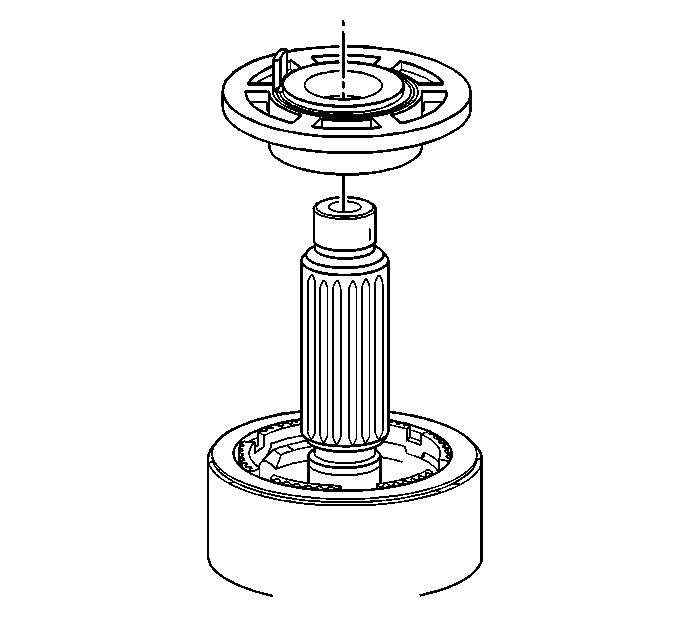
- Remove the clutch pressure plate assembly.
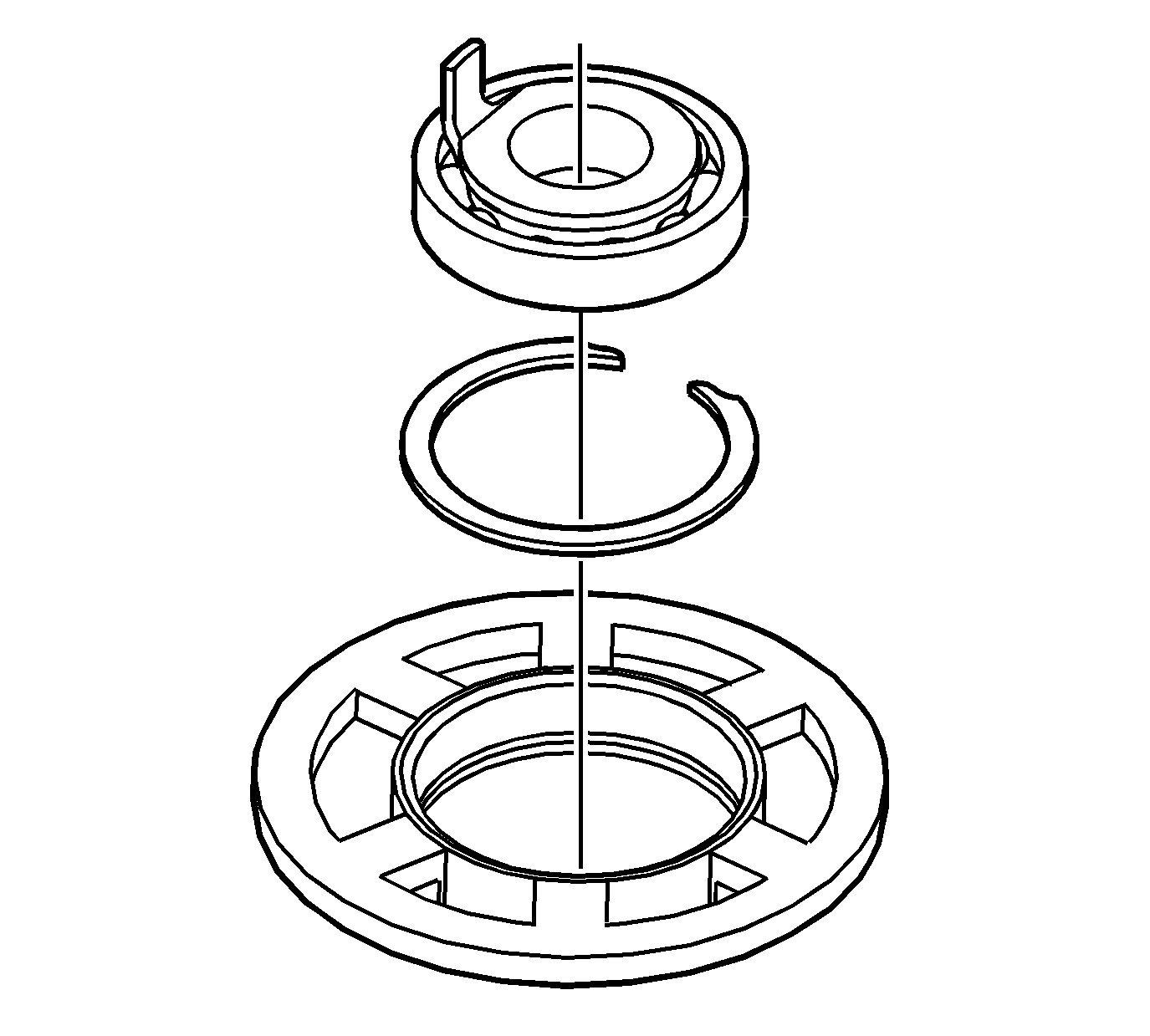
- Remove the clutch pressure plate bearing
along with the clutch pressure plate hub, from the clutch pressure plate.
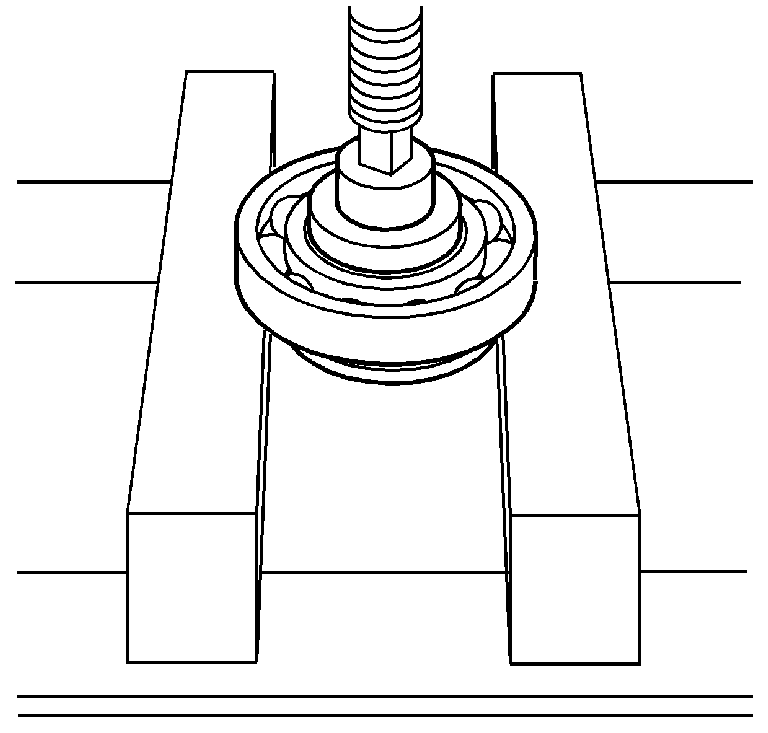
- Inspect the bearing for being faulty.
Refer to
Transfer Case Cleaning and Inspection
.
- If the bearing is faulty, using a hydraulic press and a suitable
adapter, remove the clutch pressure plate bearing from the clutch pressure
plate hub.
- Discard the bearing after removal.
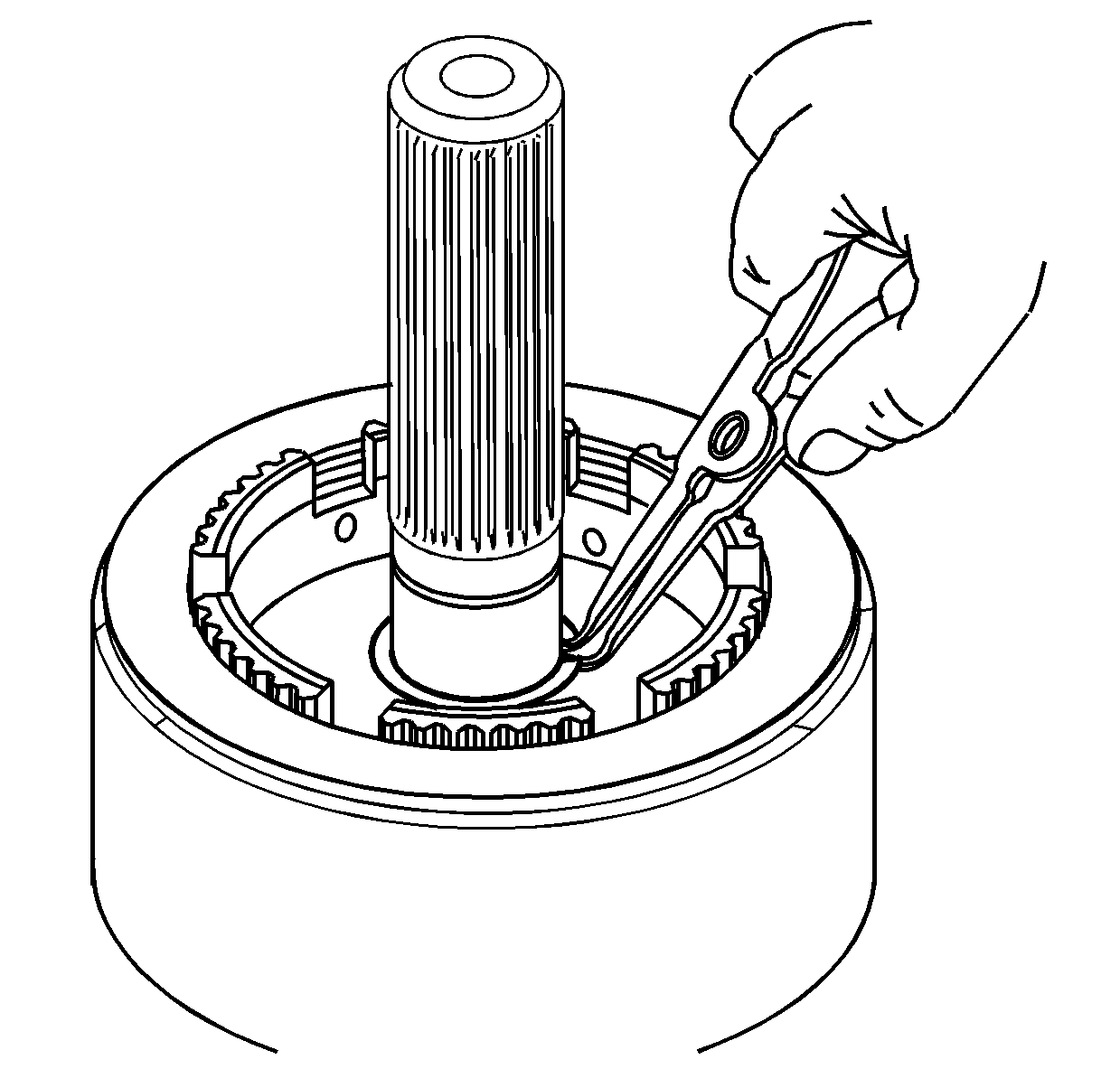
- Remove the clutch hub retaining ring.
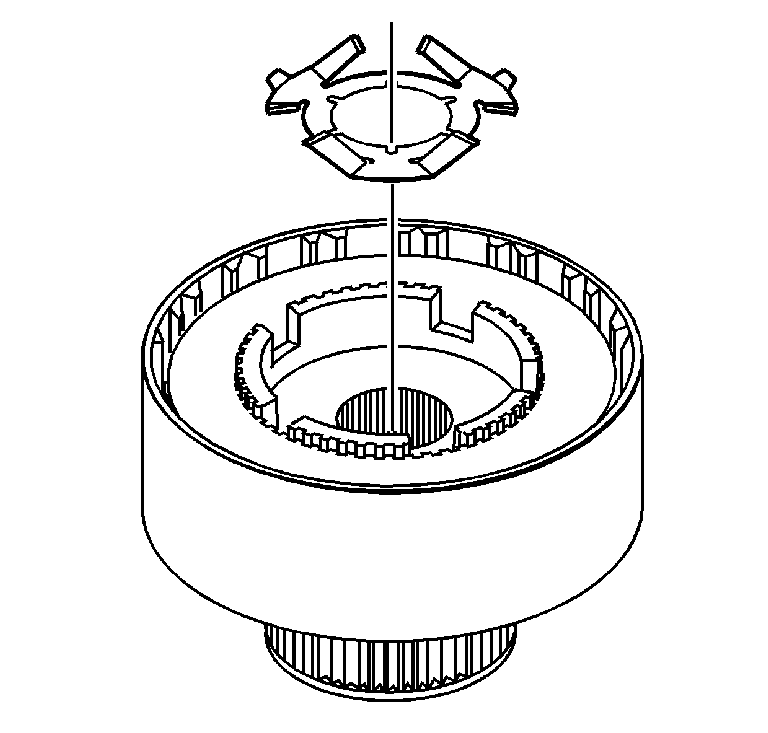
- Remove the clutch housing and hub assembly
from the rear output shaft.
- Remove the clutch spring.
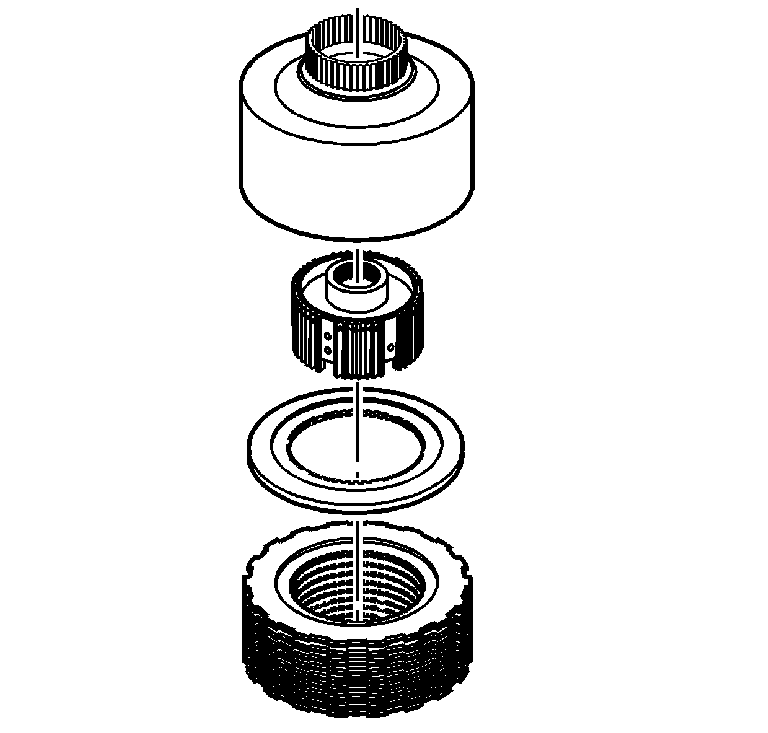
- Turn the clutch assembly over on a workbench.
- Remove the clutch housing.
- Remove the clutch hub.
- Remove the clutch backing plate.
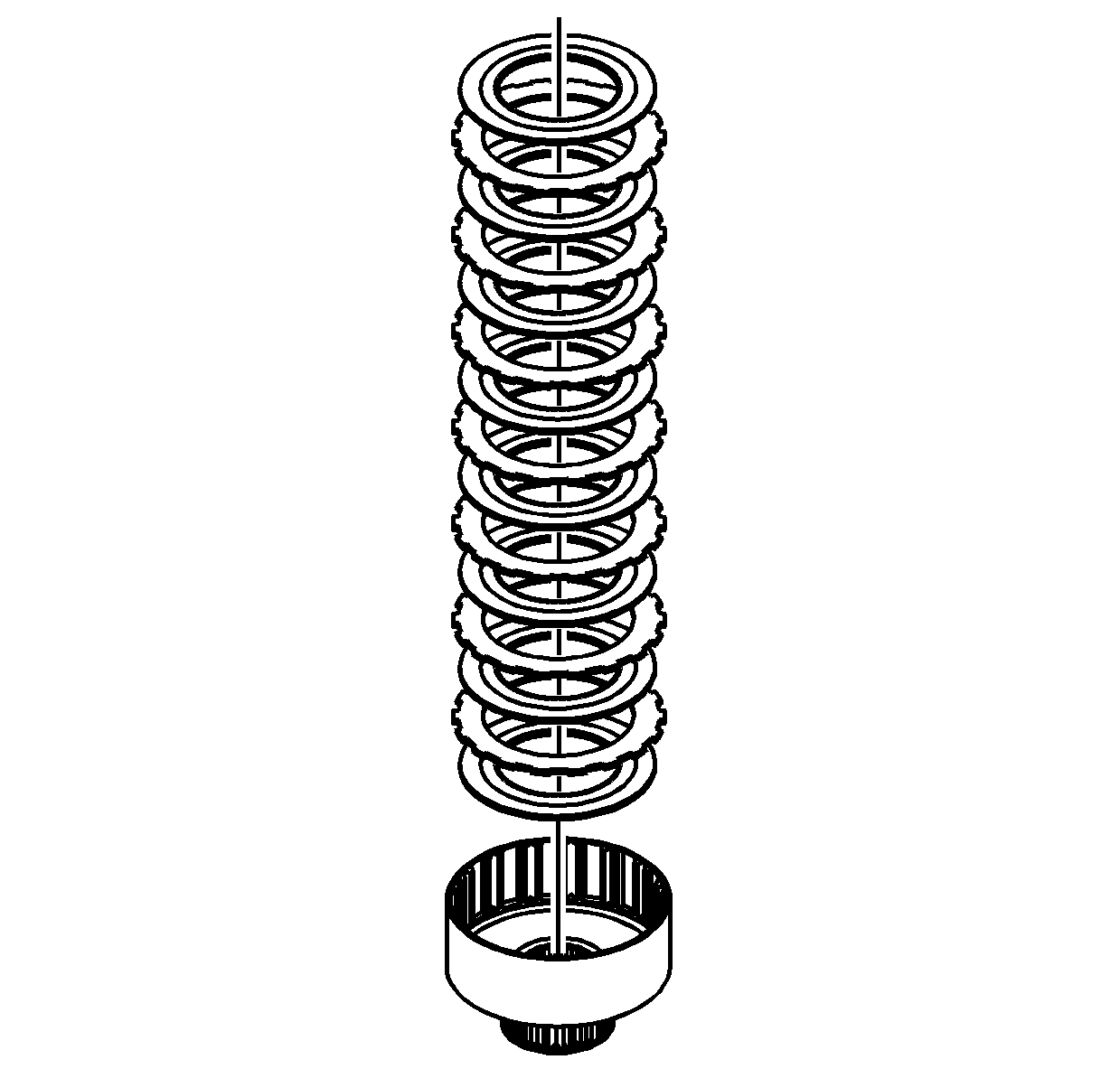
Important: Do not wash the clutch inner friction plates in cleaning solvent.
- Separate the clutch plates for inspection.
- Remove and discard the shim or shims.
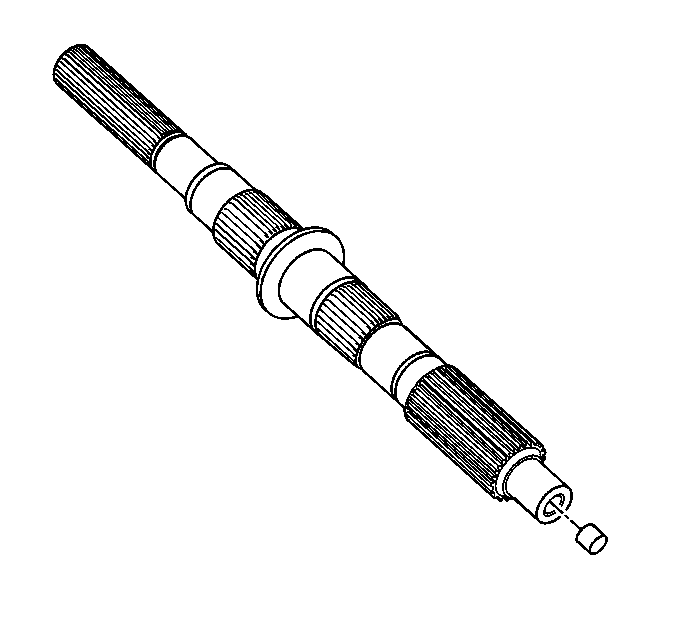
- Remove the oil restrictor from the rear
output shaft, if replacing the shaft.
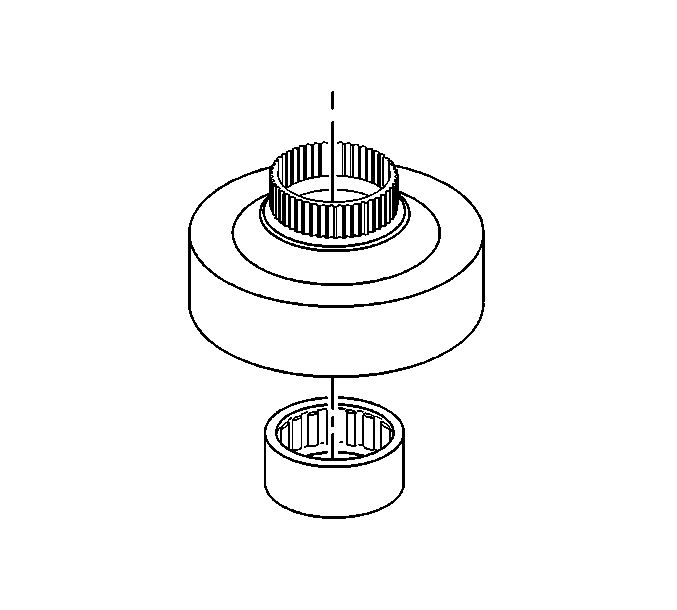
- Inspect the bearing in the clutch housing
for being faulty. Refer to
Transfer Case Cleaning and Inspection
.
- If the bearing is faulty, use a brass drift and a hammer to remove
the bearing.
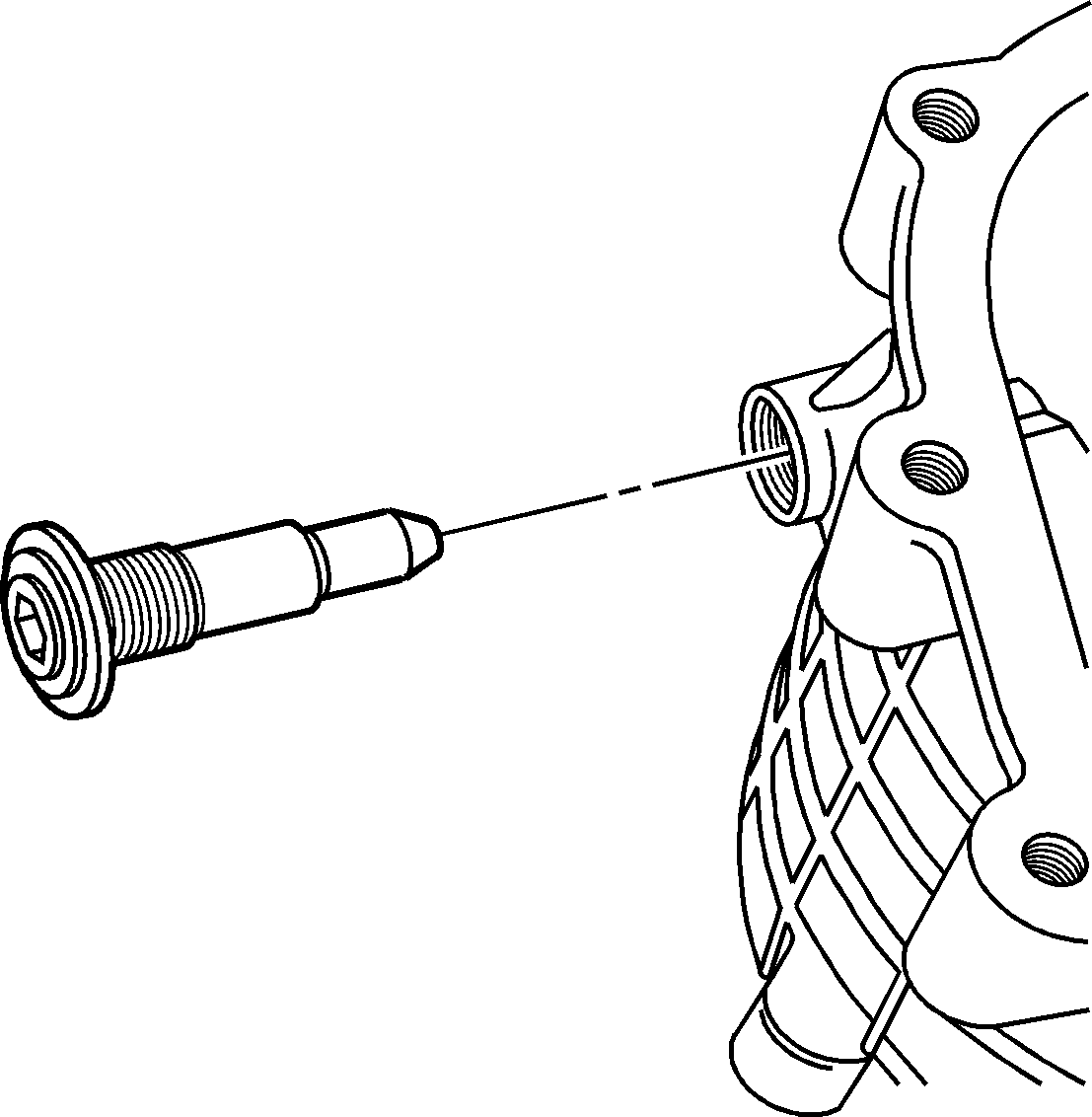
- Remove both of the clutch lever pivot
pins with washers and O-ring seals.
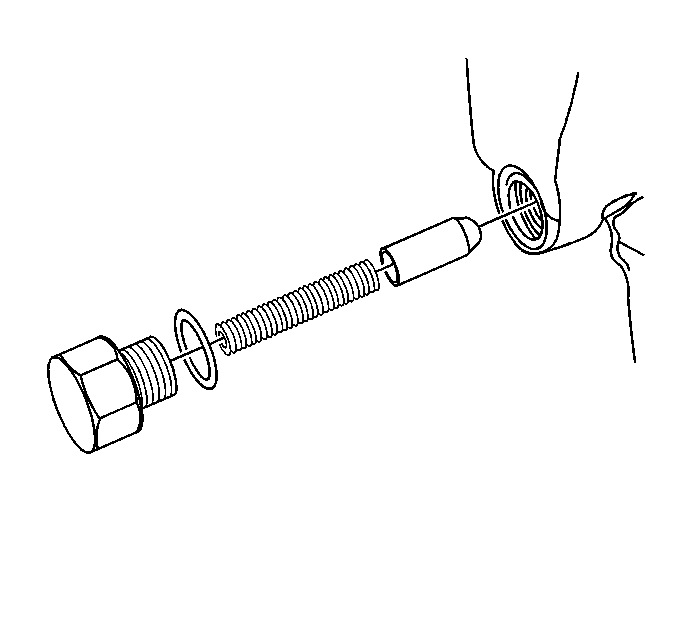
- Remove the shift detent spring bolt.
- Remove the following components:
| • | The shift detent plunger plug O-ring seal |
| • | The shift detent spring |
| • | The shift detent plunger |
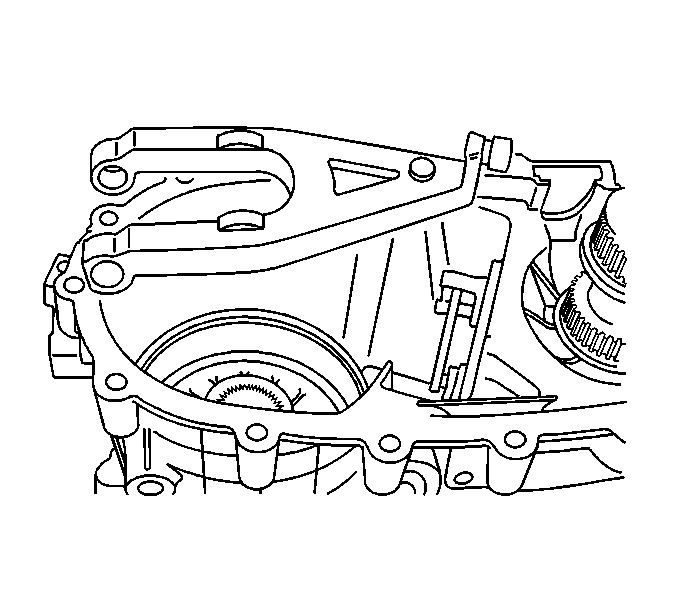
- Remove the clutch lever assembly.
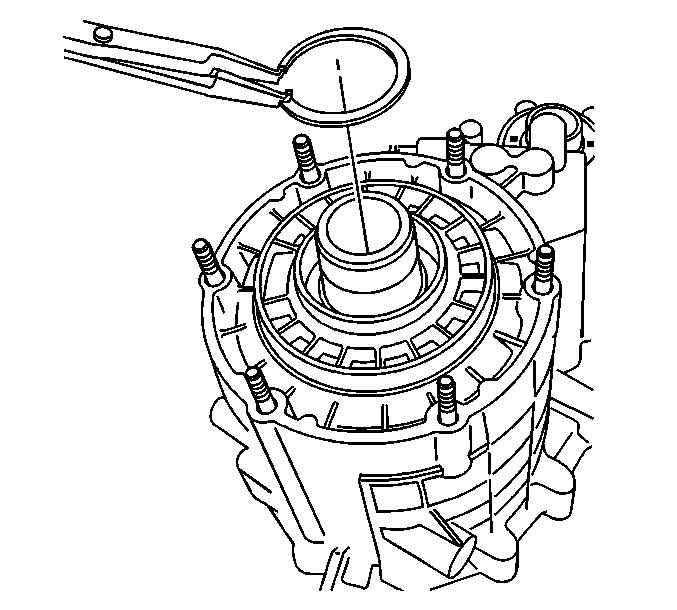
Important: Do not scratch the oil seal surface of the input shaft with the retaining
ring.
- Remove the input shaft retaining ring.
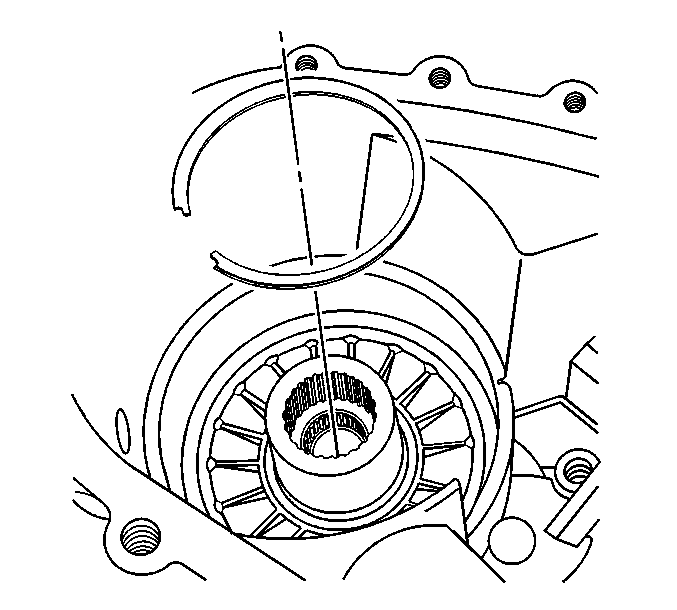
- Remove the input shaft bearing retaining
ring.
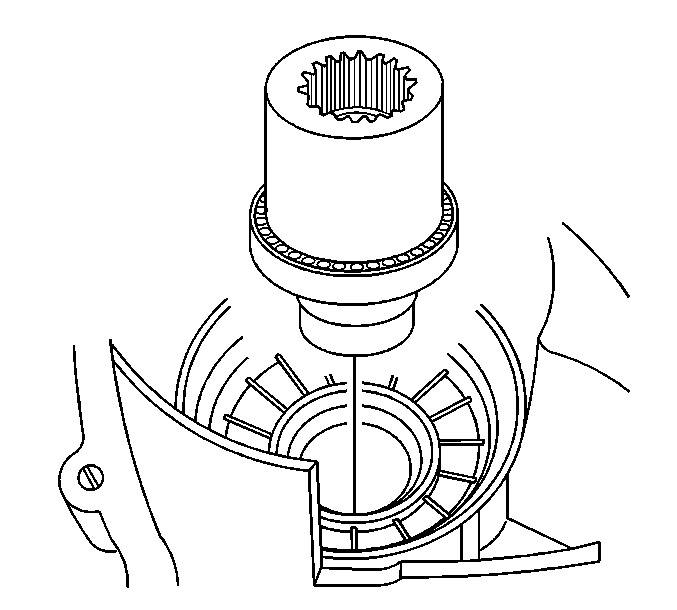
- Remove the input shaft assembly.
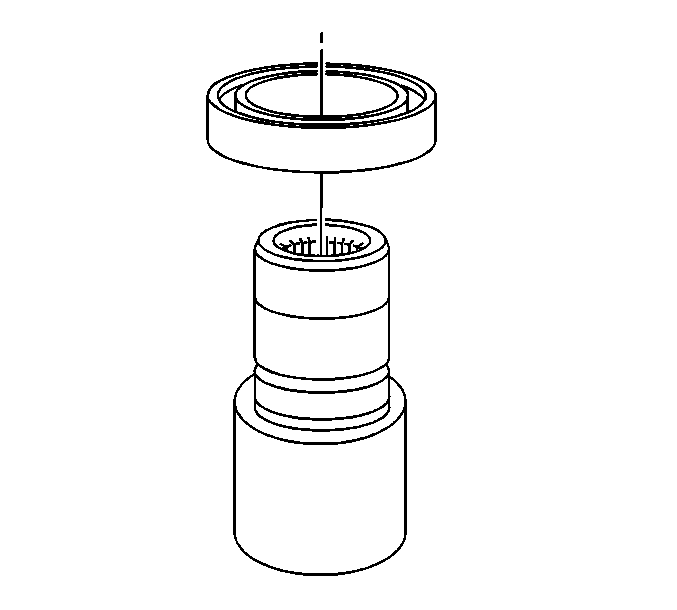
- Remove the input shaft bearing. Do not
use the bearing again after removal.
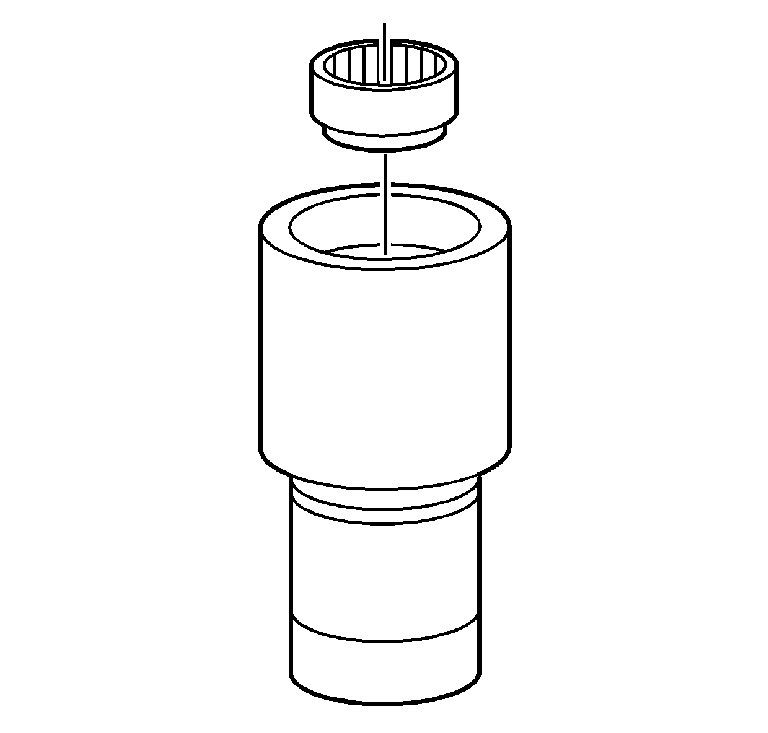
- Using a brass drift, remove the input
gear pilot bearing. Do not use the bearing again after removal.
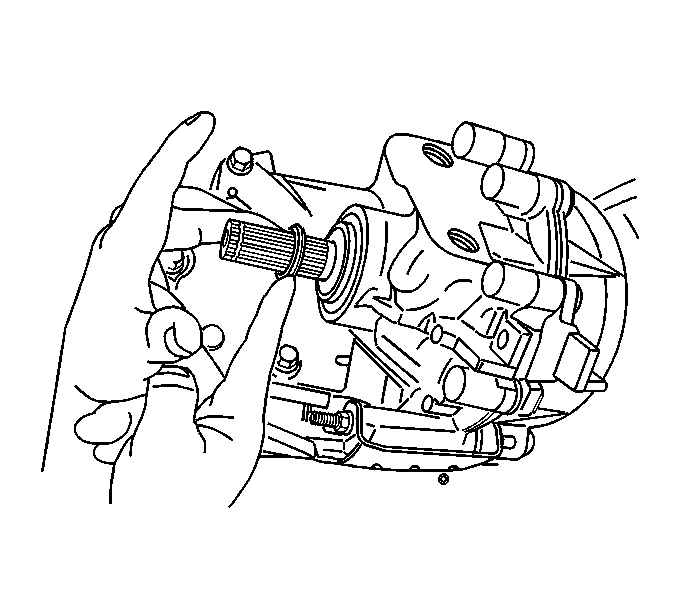
- Remove the front output shaft dust shield.
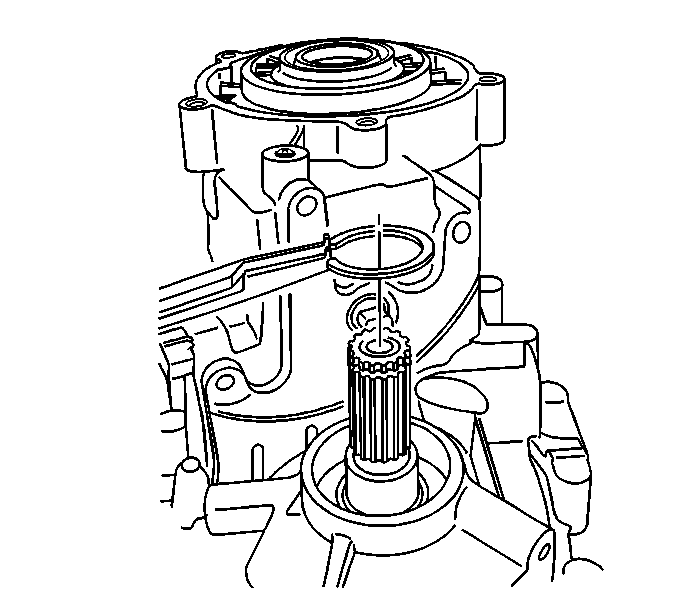
Important: Do not scratch the oil seal surface on the front output shaft when removing
the retaining ring.
- Remove the front output shaft retaining ring.
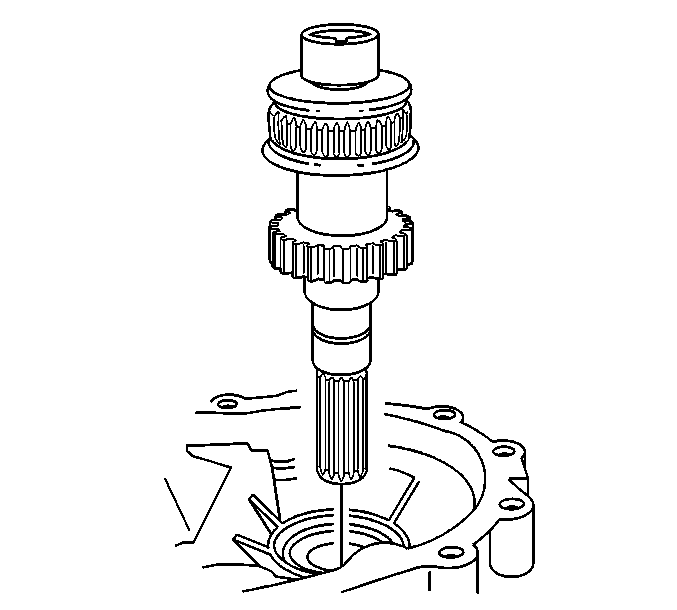
- Remove the front output shaft assembly.
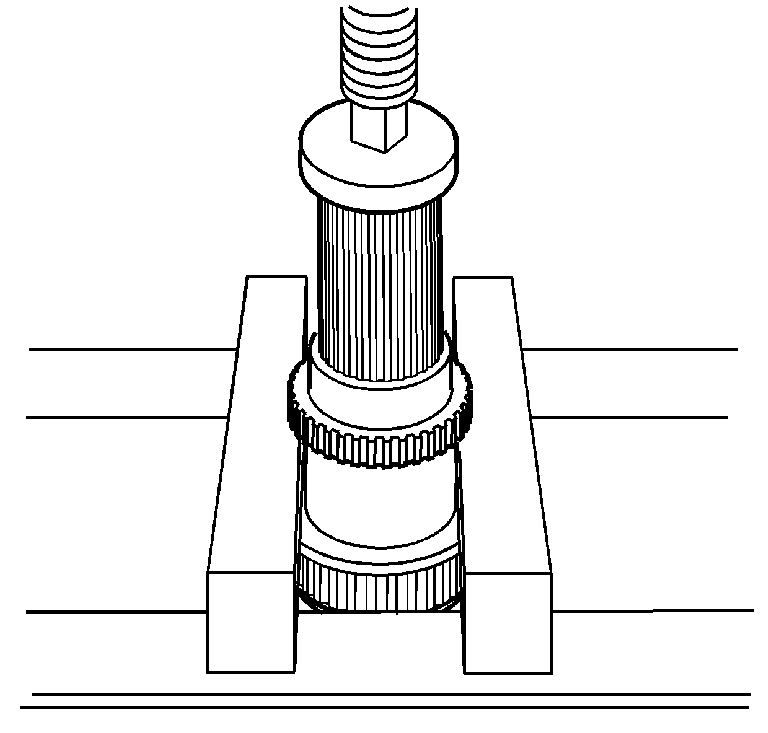
- If damaged, remove the speed sensor
reluctor wheel from the front output shaft using a hydraulic press. Do not
use the speed sensor reluctor wheel again after removal.
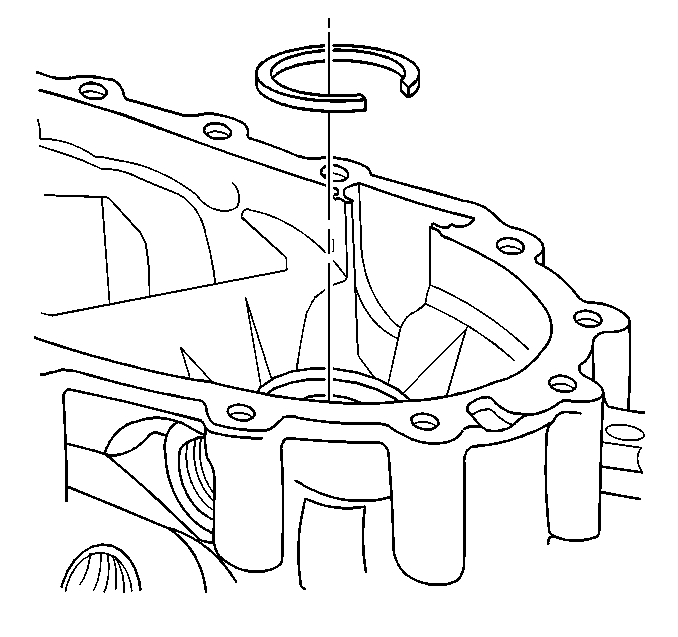
- Remove the front output shaft bearing
retaining ring.
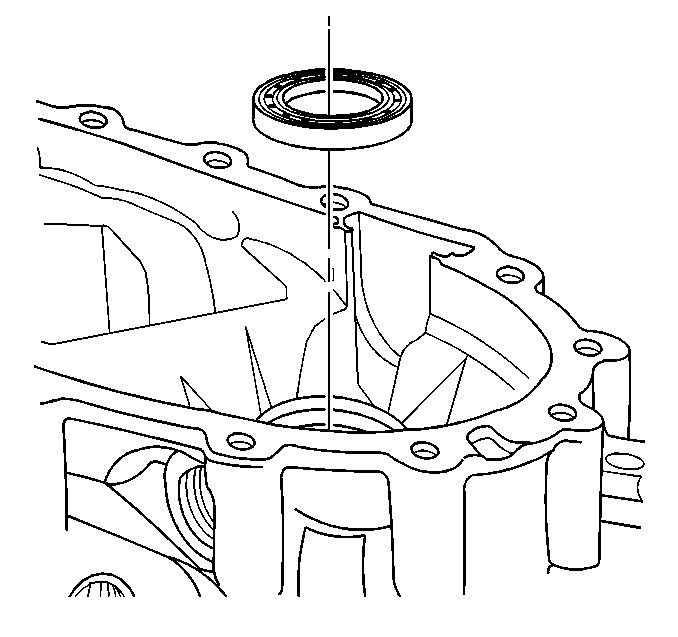
- Remove the front output shaft bearing.
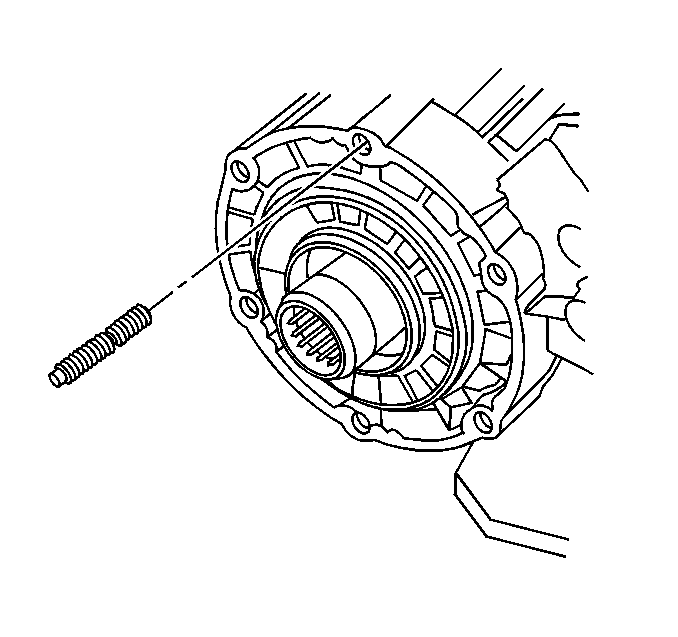
- Remove the mounting studs, only if they
are damaged.
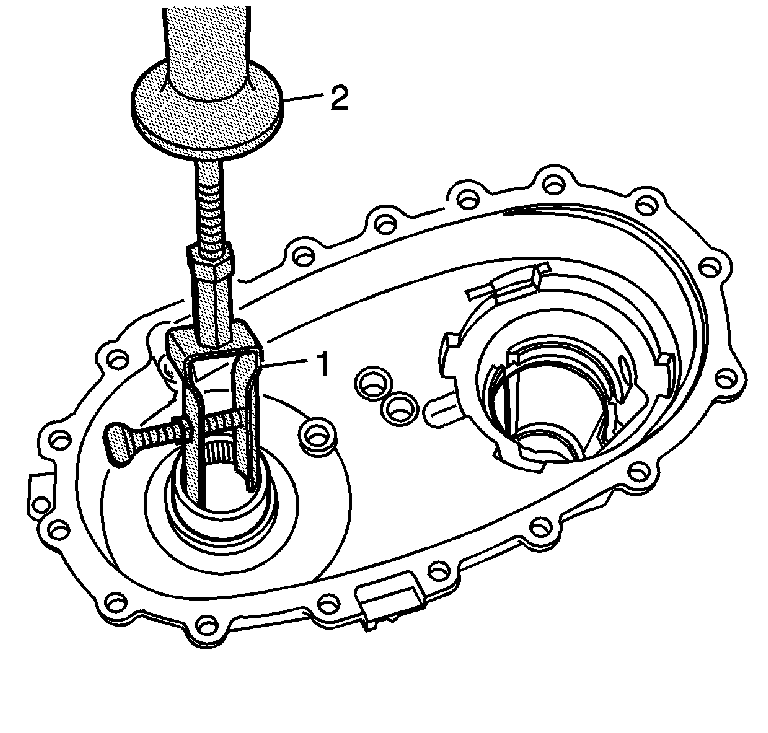
- Inspect the front output shaft rear
bearing for being faulty. Refer to
Transfer Case Cleaning and Inspection
.
- If the bearing is faulty, remove the bearing using the J 23907
(2) and the J 26941
(1).
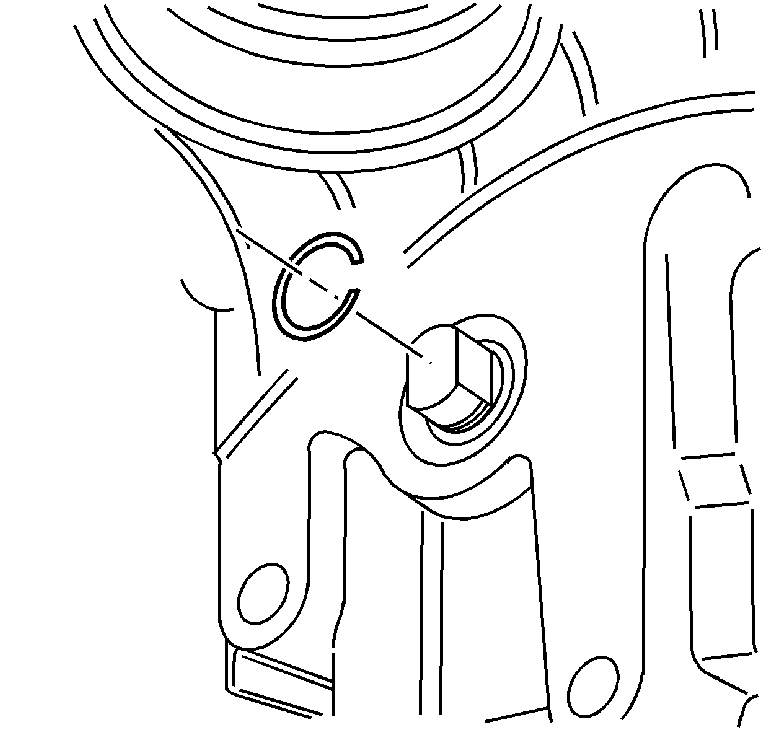
- Remove the retaining ring for the control
actuator lever shaft.
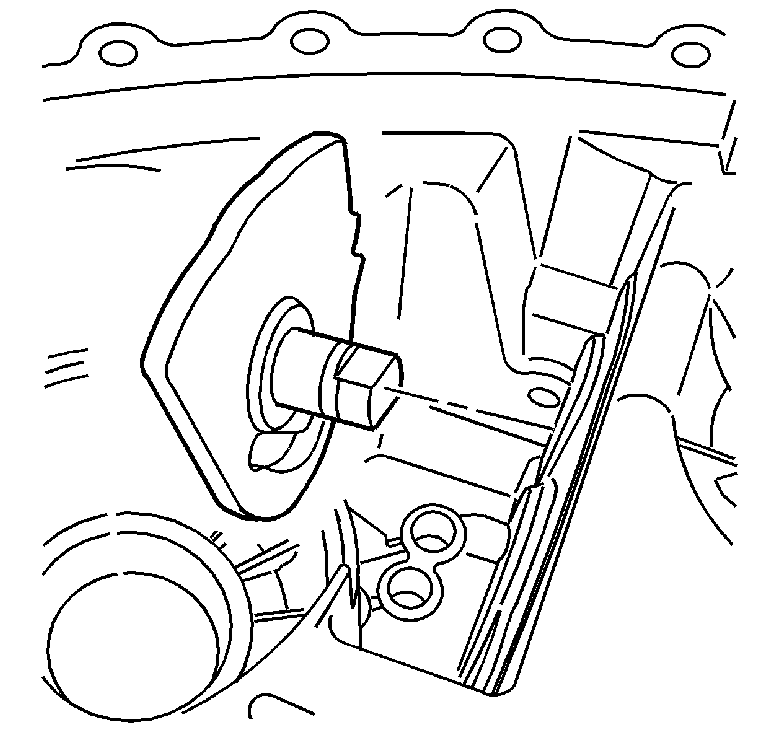
- Remove the control actuator lever shaft.
- Inspect the control actuator lever bearing and seal for being
faulty. Refer to
Transfer Case Cleaning and Inspection
.
- If the bearing is leaking or faulty, remove the bearing from the
case.




























































